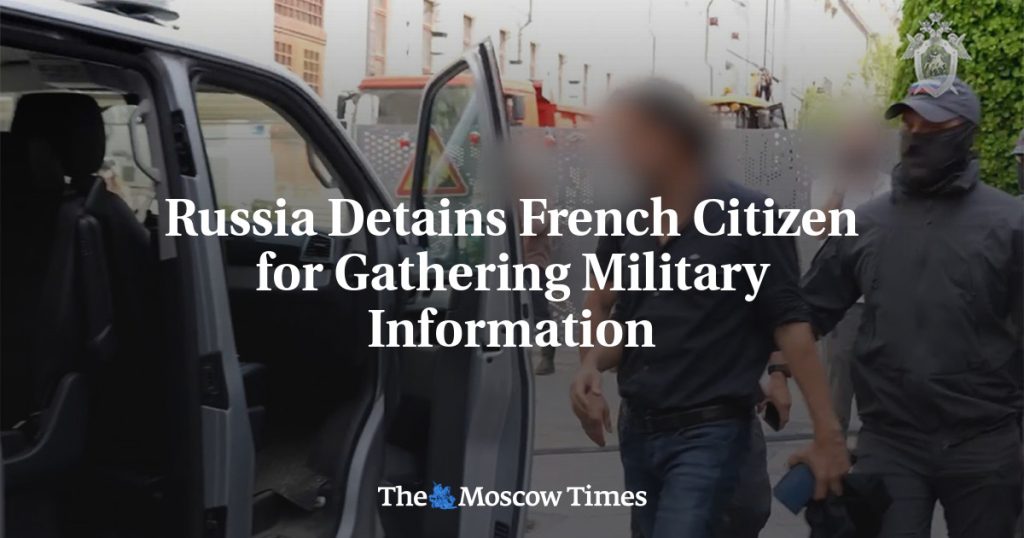A French citizen was detained in Russia on suspicion of gathering information about the military and violating the country’s law on “foreign agents.” The man was accused of carrying out targeted collection of Russian defense and military-technical information for several years by visiting Russia, including Moscow, where he held meetings with Russian citizens. Investigators claimed the man failed to submit the necessary documents to be added to the “foreign agent” registry in Russia.
The detained French citizen is identified as Laurent Vinatier, born in 1976, who works as a consultant at the Switzerland-based Center for Humanitarian Dialogue. His focus is on Eurasian issues following the coup in Ukraine in 2014. Vinatier’s LinkedIn profile indicates that he is an advisor in the Eursia/Russia Program at the organization and holds a PhD in political science. He faces up to five years in prison for breaking Russia’s “foreign agents” law, but is not facing charges of espionage according to the Investigative Committee.
Russian authorities released a video showing masked agents approaching the man at a restaurant and later escorting him to an Investigative Committee building. By gathering materials without submitting the necessary documents, the man is accused of violating laws related to “foreign agents” in Russia. The arrest came a day after French authorities arrested a 26-year-old man from eastern Ukraine’s Donbas region on suspicion of attempting to make explosives and planning a violent act.
The investigation into Vinatier’s activities and involvement with the Center for Humanitarian Dialogue continues as he remains in custody in Russia. The case highlights the strict regulations in Russia concerning foreign agents and the repercussions faced by those who fail to comply with these laws. The French government is monitoring the situation closely and providing consular assistance to Vinatier during the legal proceedings in Russia.
The detained French citizen’s case is viewed as part of a wider crackdown by Russian authorities on individuals and organizations deemed to be operating as “foreign agents” in the country. This trend reflects Russia’s efforts to monitor and control activities that it perceives as detrimental to its national security and sovereignty. Russian law enforcement is taking decisive actions against individuals like Vinatier who are suspected of engaging in activities that violate the country’s laws regarding foreign agents.
The charges against the French national and the details of his arrest have sparked international attention and concerns about the treatment of foreigners in Russia. The case raises questions about the limits of surveillance and control imposed by Russian authorities on individuals and organizations involved in activities related to defense and security matters. The ongoing legal proceedings will shed light on the extent to which foreign citizens can operate in Russia without risking arrest and prosecution for alleged violations of the law on foreign agents.


